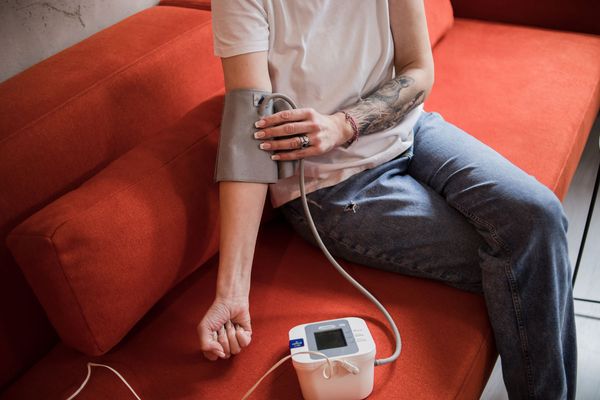Regulatory Guidance for AI in Drug Manufacturing: Quo Vadis? (Guest blog by d-fine)
Guest blog by Martin Heitmann, Expert in Healthcare Digitalisation at d-fine
Artificial Intelligence has the potential to radically change processes along the pharma value chain, boosting efficiency and unlocking new use cases. Promising use cases in the value chain include knowledge management in research, market access and commercialisation, co-vigilance, and post-market surveillance.
Some areas along the pharma value chain are regulated more tightly than others, one particular example being the drug manufacturing process. On the one hand, the use of AI is expected to improve manufacturing processes with respect to key performance indicators on economics and quality. On the other hand, regulatory expectations specific to AI and the interpretation of existing standards such as the EU GMP Annex 11 or Current Good Manufacturing Practice Regulations by the FDA are still deemed unclear. This causes uncertainty in the industry regarding development practices, project management, and communications between the industry and governing bodies.
Having acknowledged this uncertainty, the FDA published a proposal to approach Artificial Intelligence in Drug Manufacturing from a regulatory point of view. This proposal does not offer regulatory guidance yet. Rather, it intends to foster alignment with the industry, to then define a balanced regulatory playing field that enables innovation and at the same time ensures a common understanding of quality. The FDA in turn asks for existing industry practices for consideration.
Reviewing the FDA’s proposal, we highlight the following key points:
- Scope of activities: Advanced process control as an umbrella term is an important use case for AI in pharma production. In addition, we highlight the differences in specific risk profiles regarding product quality and patient safety for various optimisation targets, ranging from yield optimisation, reduction of energy usage, and optimisation of through-put and cleaning times, which should be reflected in respective guidance.
- Distinction between infrastructure and models: The FDA mentions the use of cloud computing in combination with AI models. In this regard, we deem a clear distinction necessary between infrastructure and application level. This would also facilitate harmonisation with other guidance, such as cloud computing in classical, non-AI applications.
- Coverage of self-learning AI models: The FDA acknowledges the need for self-learning AI models and asks for existing practices or concepts on how to govern such AI applications. Here, we highlight our previous work in establishing industry best practices within the GAMP D-A-CH Special Interest Group on AI in the Regulated Areas, namely
At an overarching level, we emphasise the importance to harmonize regulatory initiatives globally, such as the revision of the EU GMP Annex 11, or the proposal for a European AI Act. Only under a harmonised approach can technologies and methodologies be applied in a global scope, fostering best practices and operational excellence.
Having had the chance to comment on the proposal paper, we appreciate the FDA’s approach to unlock the potential of AI in drug manufacturing: Based on clear industry needs, leveraging existing practices and concepts. This will be one milestone to continue the success story of AI applications in healthcare – following the example of medical devices and medical imaging, with more than 500 algorithms cleared by the FDA so far. As next steps in this collaboration between regulatory bodies and the industry, we expect deep dives into methodology and lighthouse projects, to take the mutual understanding to the next level.
d-fine is a European consulting firm which provides innovative and future-proof solutions through sustainable technological implementation. More than 1,000 scientifically minded, highly qualified employees combined with their extensive practical experience enable us to conceive and implement bespoke, future-proof solutions for our clients with their specific challenges. The typical integrated d-fine approach − design and implementation under one roof – is a core component of our project work. Based on our extensive project experience, we engage in shaping industry best practices and communications with regulatory bodies.
To find out more, contact Martin Heitmann at [email protected].
Groups

techUK has launched a Life Sciences workstream, bringing together members actively working in drug discovery, digital therapeutics, data and AI, or those interested in moving into this space. As the Life Sciences sector looks to introduce digital health technologies into its portfolio, techUK are shaping the conversation.

The Interoperability Working Group will work towards achieving the vision set out in NHS England’s 2022 draft standards and interoperability strategy.
The group will aim to encourage the adoption of open standards and fluidity of data whilst recognising the commercial needs of members.
It will also focus on demonstrating the value of interoperability to NHS senior management and improving the abilities of SMEs to implement interoperability standards.

Find out more about our work to shape the digital social care marketplace and how our members are innovating across the industry.
Health and Social Care updates
Sign-up to get the latest updates and opportunities from our Health and Social Care programme.
Authors
Martin Heitmann
Expert in Healthcare Digitalisation, d-fine
After his M.Sc. studies in business mathematics at the University of Mannheim, Martin directly started his career at d-fine. His first project engagements have been in one of d-fine’s core business areas, the design of large data pools to apply predictive analytics methods. Later, Martin focused on the challenges in the Pharma and Healthcare market. A manager by now, he transfers the process design, data science, and large-scale implementation expertise to complex digital transformation projects, e.g., post-market surveillance under the MDR, the implementation of a prescription settlement platform, and digitalization projects for senior residence operators. In the collaborative healthcare and pharma community, Martin is an active member of various industry groups and knowledge-sharing platforms.







